Nurses Narratives: Sister Edith Agnes Purdon
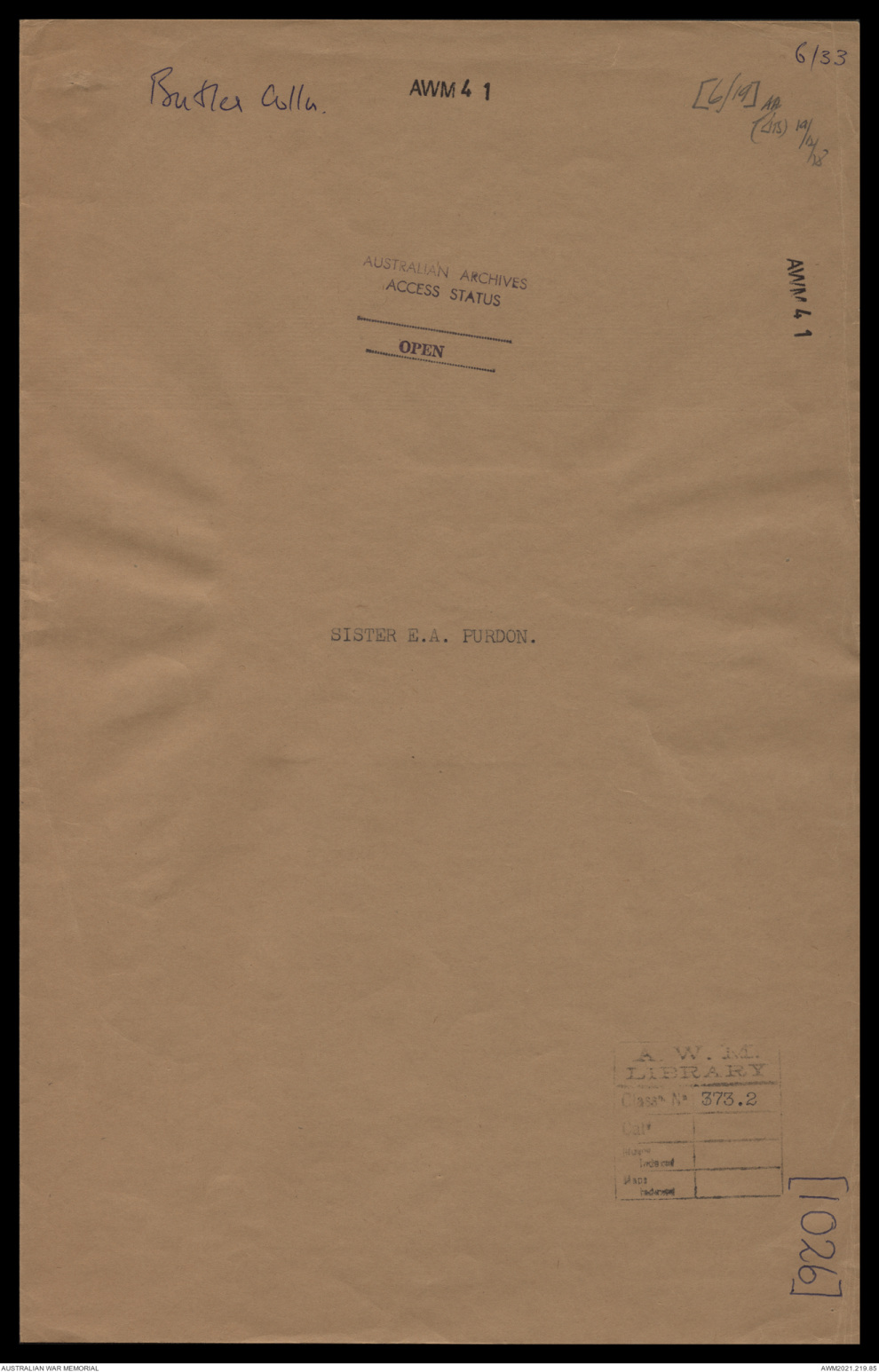
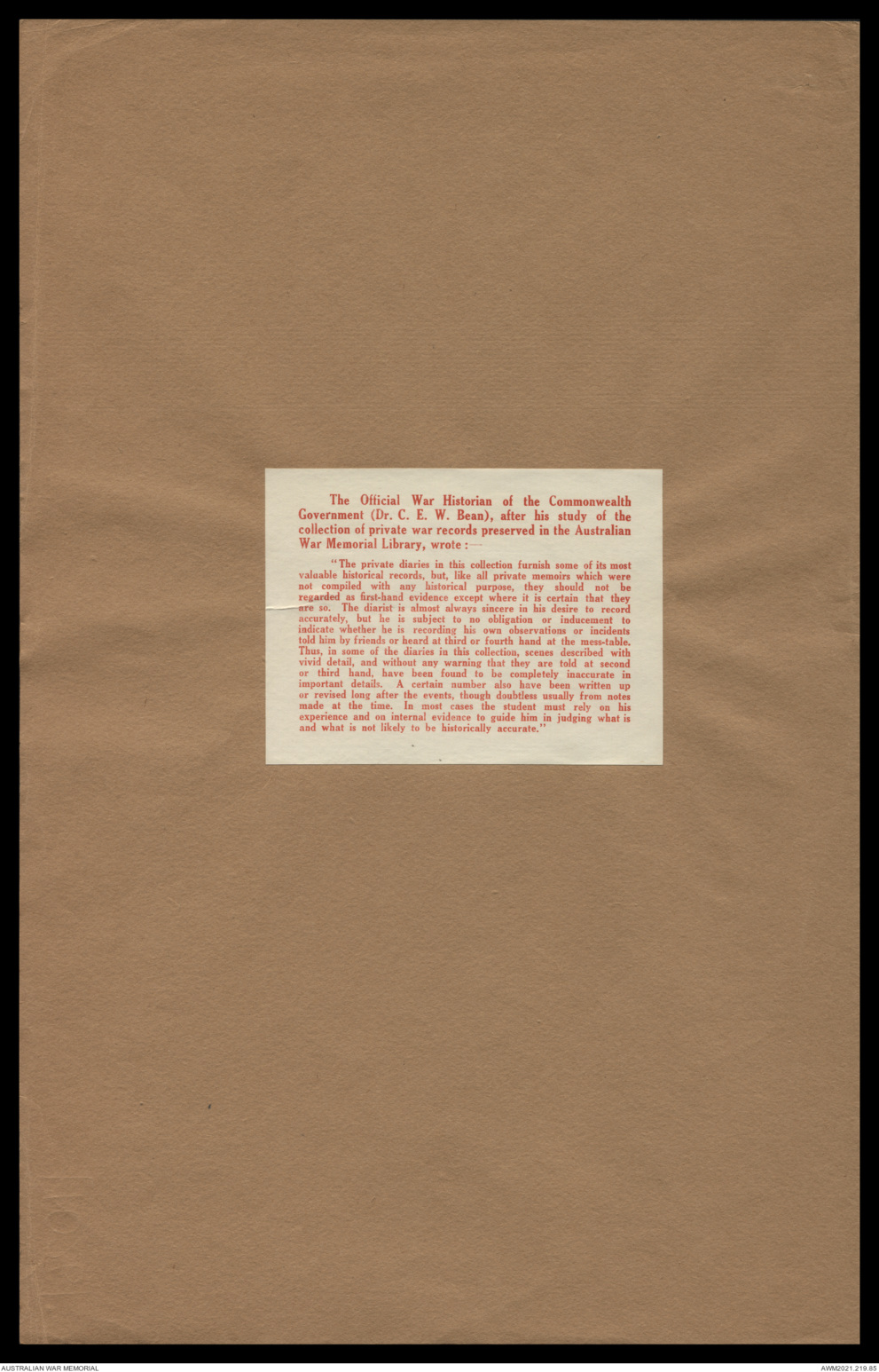
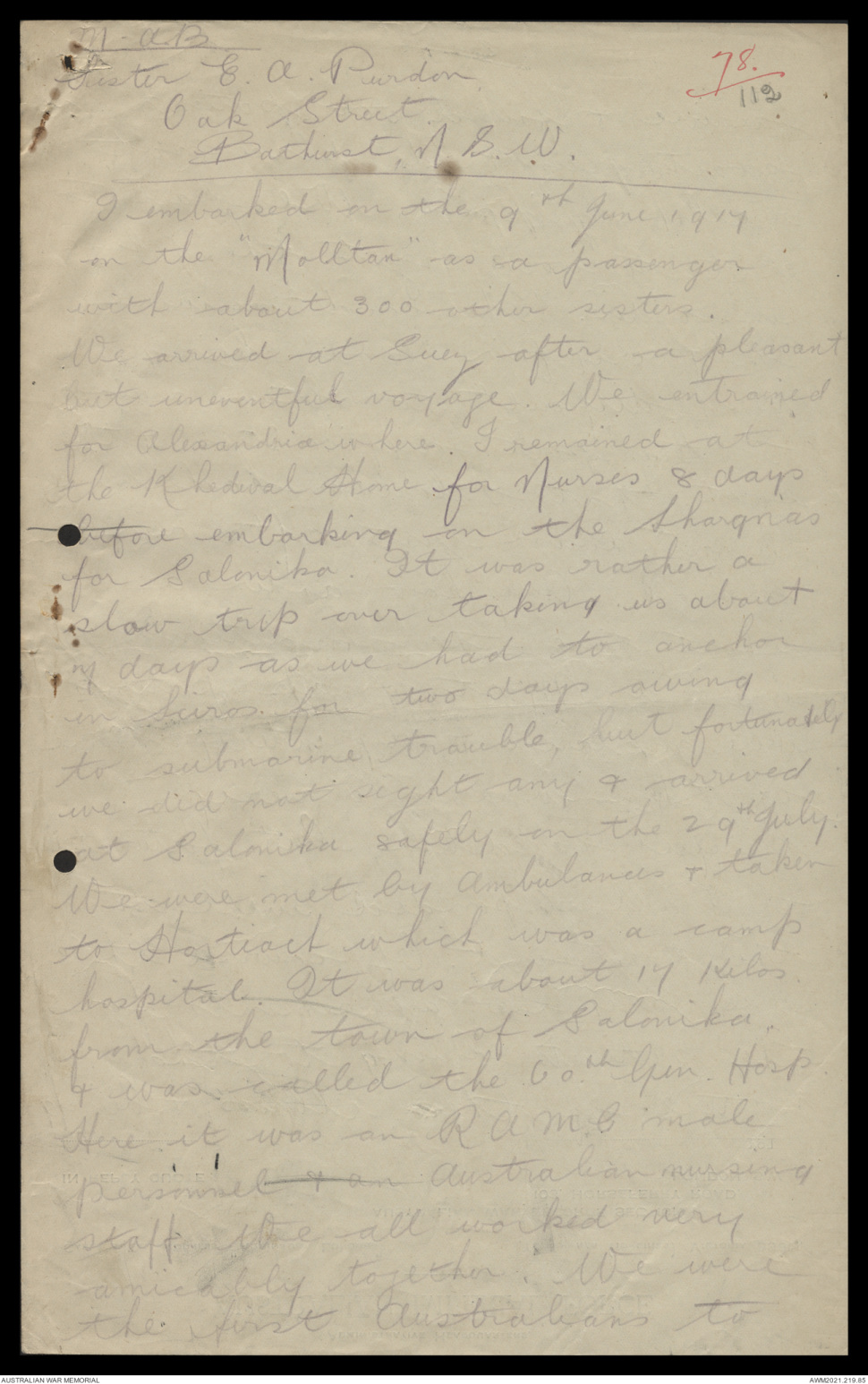
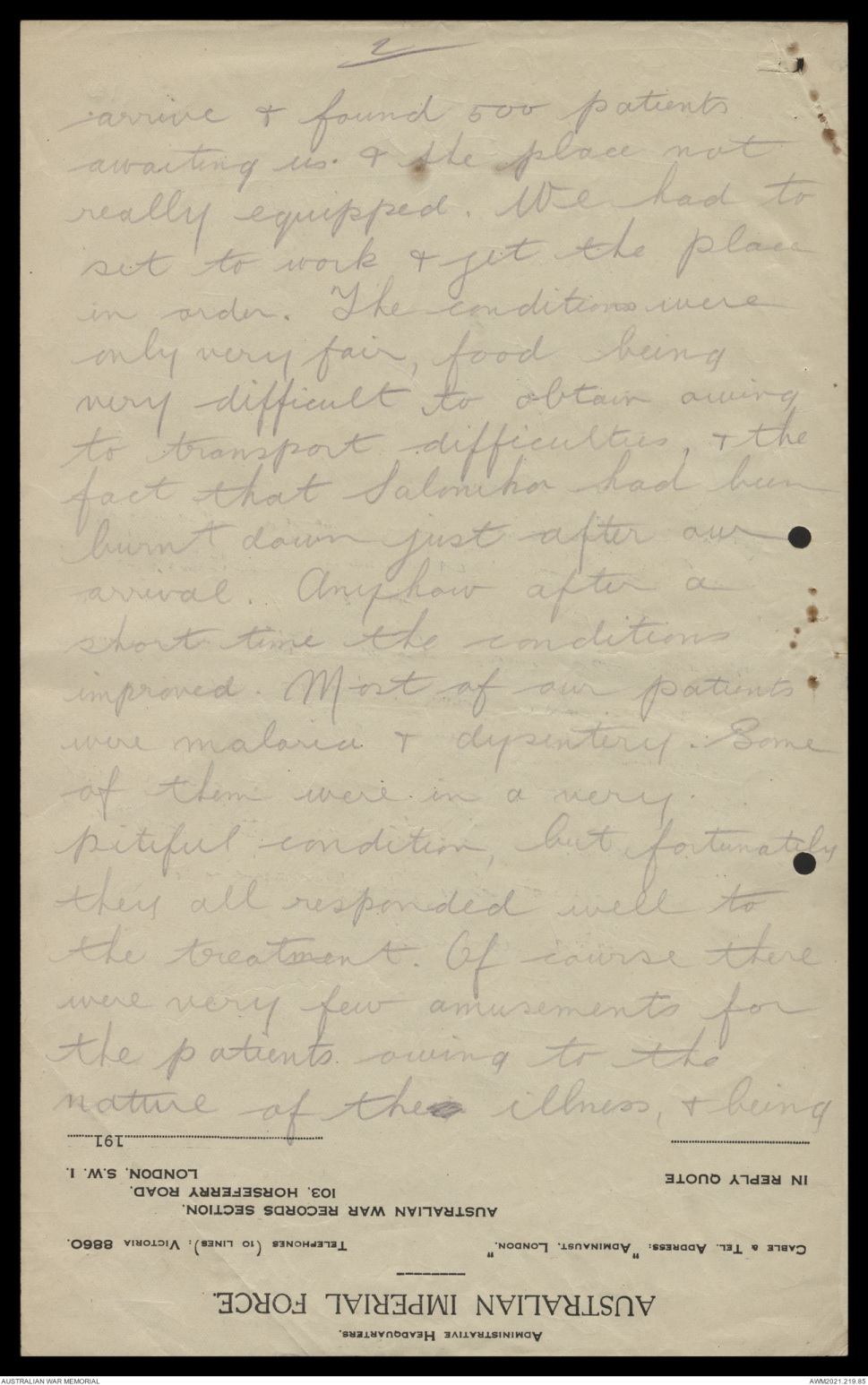
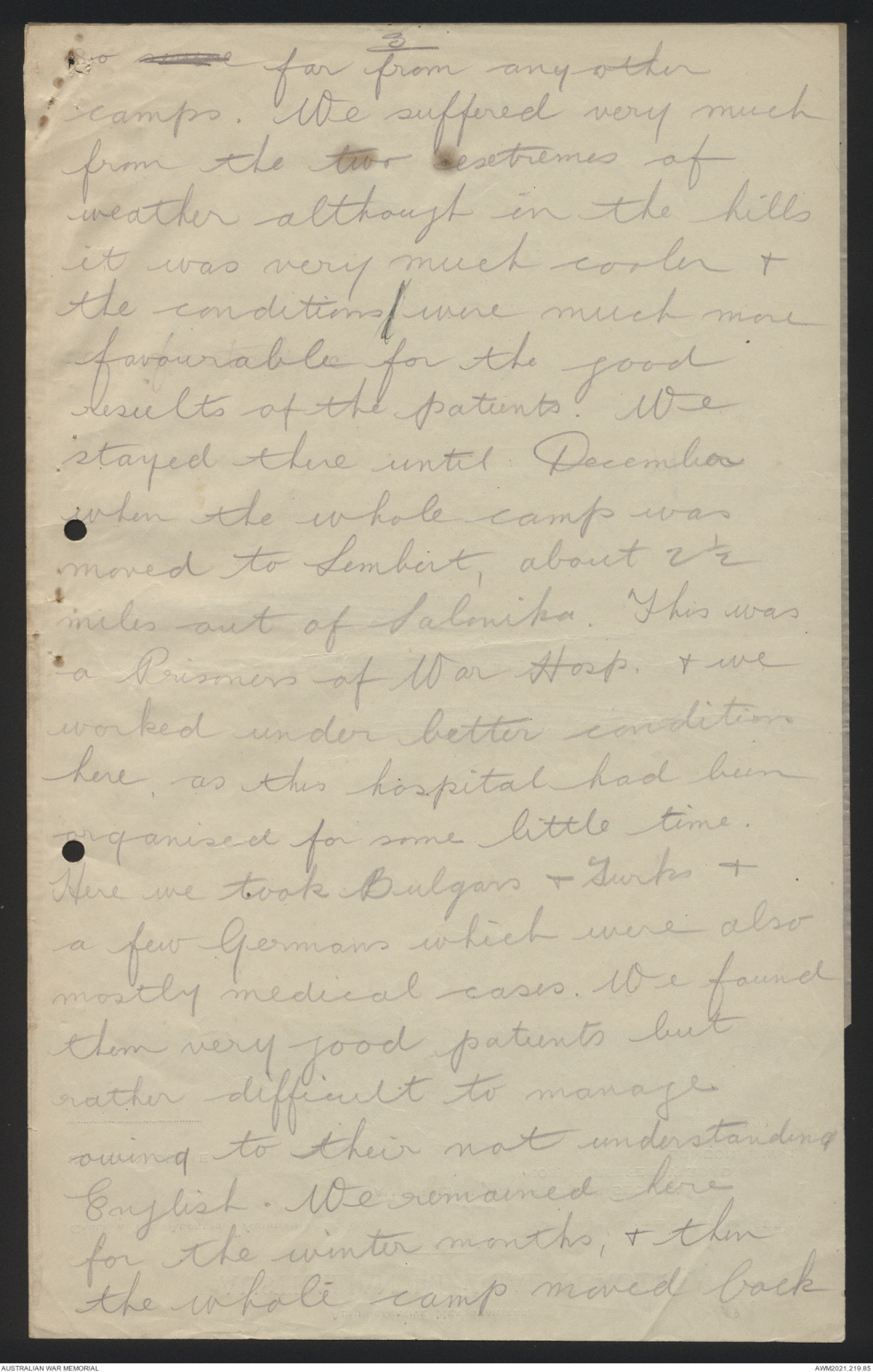
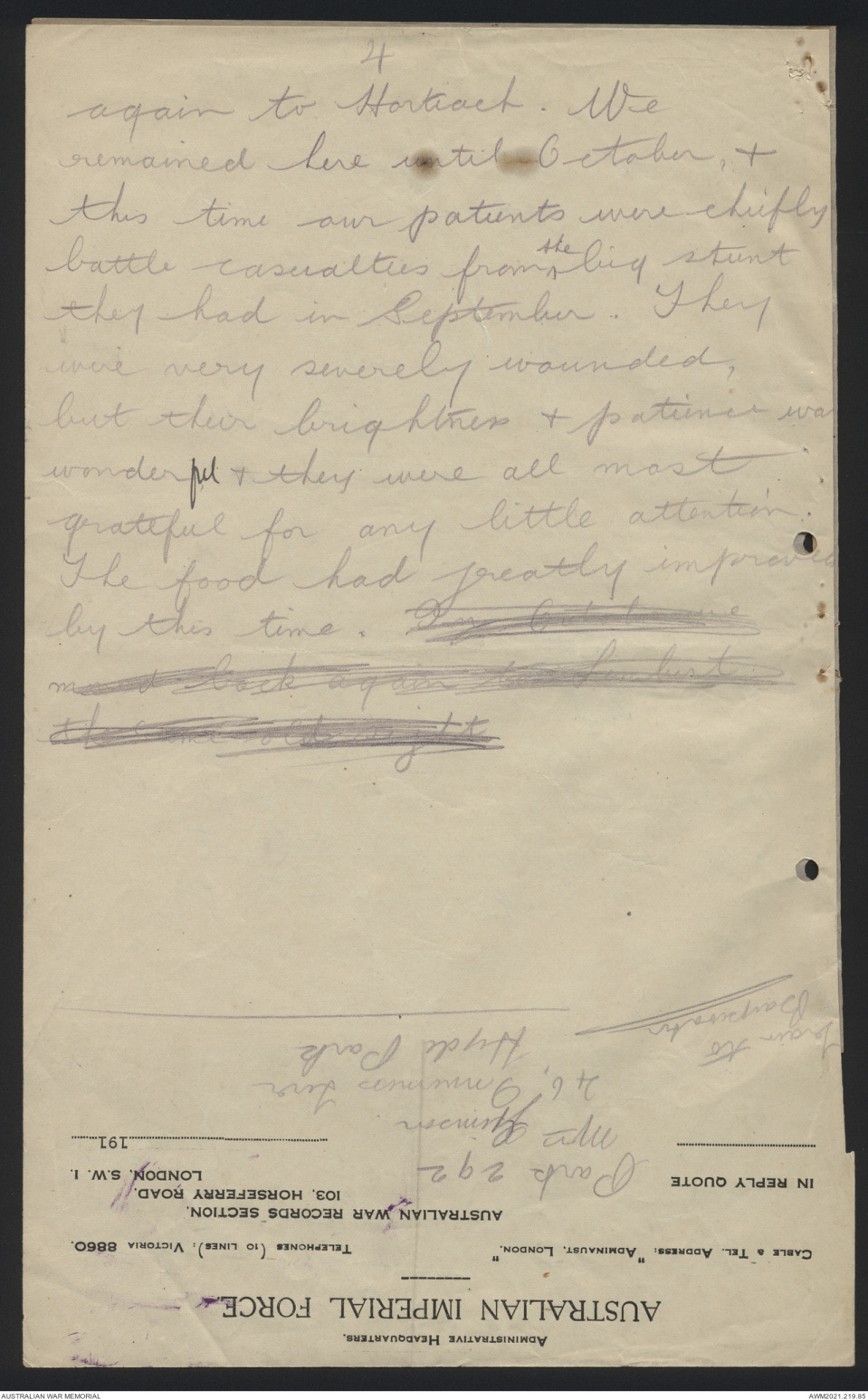
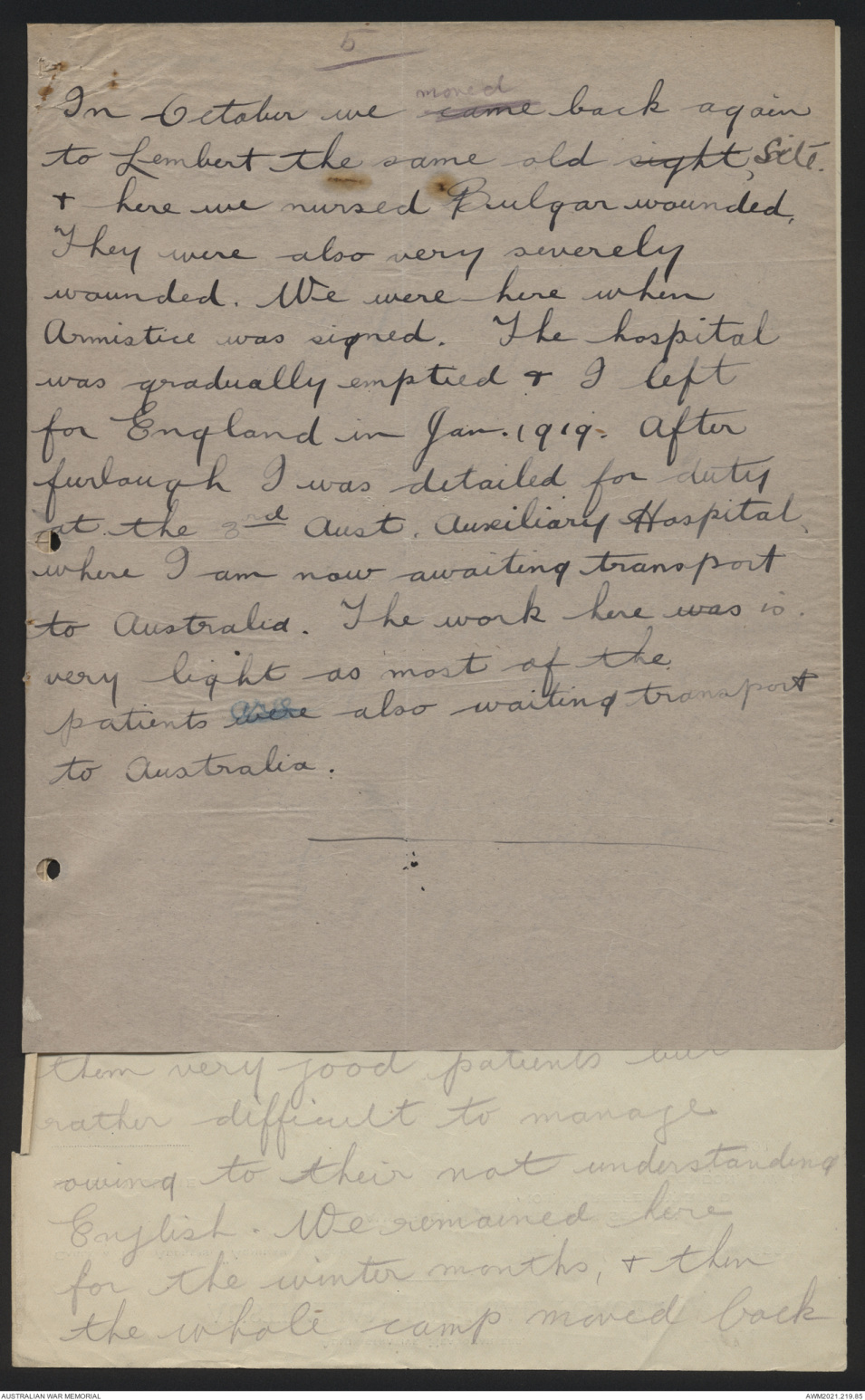
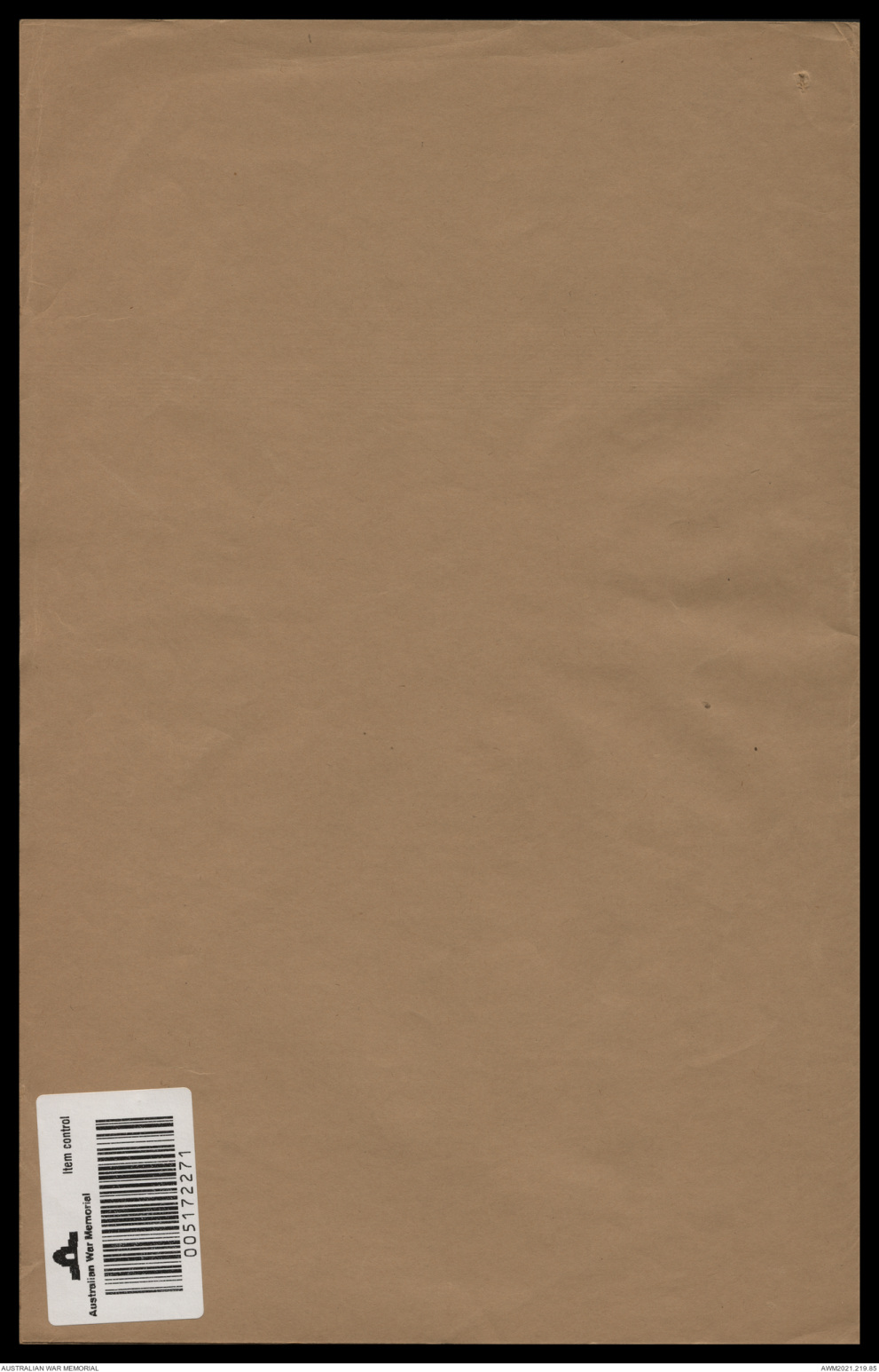
6/33
[[Butler Cilla?]]
AWM 41
[6/19]
(Dis) 14/12/18
SISTER E.A. PURDON.
[1026]
The Official War Historian of the Commonwealth
Government (Dr. C. E. W. Bean), after his study of the
collection of private war records preserved in the Australian
War Memorial Library, wrote:-
"The private diaries in this collection furnish some of its most
valuable historical records, but, like all private memoirs which were
not compiled with any historical purpose, they should not be
regarded as first-hand evidence except where it is certain that they
are so. The diarist is almost always sincere in his desire to record
accurately, but he is subject to no obligation or inducement to
indicate whether he is recording his own observations or incidents
told him by friends or heard at third or fourth hand at the mess-table.
Thus, in some of the diaries in this collection, scenes described with
vivid detail, and without any warning that they are told at second
or third hand, have been found to be completely inaccurate in
important details. A certain number also have been written up
or revised long after the events, though doubtless usually from notes
made at the time. In most cases the student must rely on his
experience and on internal evidence to guide him in judging what is
and what is not likely to be historically accurate".
78. /112
M.A.B
Sister E.A. Purdon
Oak Street
Bathurst, N.S.W
I embarked on the 9th June 1917
on the "Molltan" - as a passenger
with about 300 other sisters.
We arrived at Suez after a pleasant
but uneventful voyage. We entrained
for Alexandria where I remained at
the Khedival Home for Nurses 8 days
before embarking on the Shangria's
for Salonika. It was rather a
slow trip over taking us about
7 days as we had to anchor
in [[Sciros?]] for two days owing
to submarine trouble, but fortunately
we did not sight any & arrived
at Salonika safely on the 29th July.
We were met by ambulances & taken
to Hortiach which was a camp
hospital. It was about 17 Kilos
from the town of Salonika.
& was called the 60th Gen. Hosp.
Here it was an R A M C male
personnel & an Australian nursing
staff. We all worked very
amicably together. We were
the first Australians to
2
arrive & found 500 patients
awaiting us & the place not
really equipped. We had to
set to work & get the place
in order. The conditions were
only very fair, food being
very difficult to obtain owing
to transport difficulties, & the
fact that Salonika had been
burnt down just after our
arrival. Anyhow after a
short time the conditions
improved. Most of our patients
were malaria & dysentery. Some
of them were in a very
pitiful condition, but fortunately
they all responded well to
the treatment. Of course there
were very few amusements for
the patients owing to the
nature of the illness, & being
3
So. [[severe?]] far from any other
camps. We suffered very much
from the two extremes of
weather although in the hills
it was very much cooler &
the conditions / were much more
favourable for the good
results of the patients. We
stayed there until December
when the whole camp was
moved to Lembert, about 2 1/2
miles out of Salonika. This was
a Prisoners of War Hosp. & we
worked under better conditions
here, as this hospital had been
organised for some little time.
Here we took Bulgars & Turks &
a few Germans which were also
mostly medical cases. We found
them very good patients but
rather difficult to manage
owing to their not understanding
English. We remained here
for the winter months, & then
the whole camp moved back
4
again to Hortiach. We
remained here until October, &
this time our patients were chiefly
battle casualties from the big stunt
they had in September. They
were very severely wounded,
but their brightness & patience wa[[s?]]
wonderful & they were all most
grateful for any little attention.
The food had greatly improved
by this time. In October we moved back again to Lembertthe same old sight
5
In October we came moved back again
to Lembert the same old sight, site.
& here we nursed Bulgar wounded.
They were also very severely
wounded. We were here when
Armistice was signed. The hospital
was gradually emptied & I left
for England in Jan. 1919. After
furlough I was detailed for duty
at the 3rd Aust. Auxiliary Hospital,
where I am now awaiting transport
to Australia. The work here was is
very light as most of the
patients were are also waiting transport
to Australia.
them very good patients but
rather difficult to manage
owing to their not understanding
English. We remained here
for the winter months, & then
the whole camp moved back
 Jacqueline Kennedy
Jacqueline KennedyThis transcription item is now locked to you for editing. To release the lock either Save your changes or Cancel.
This lock will be automatically released after 60 minutes of inactivity.